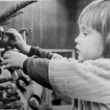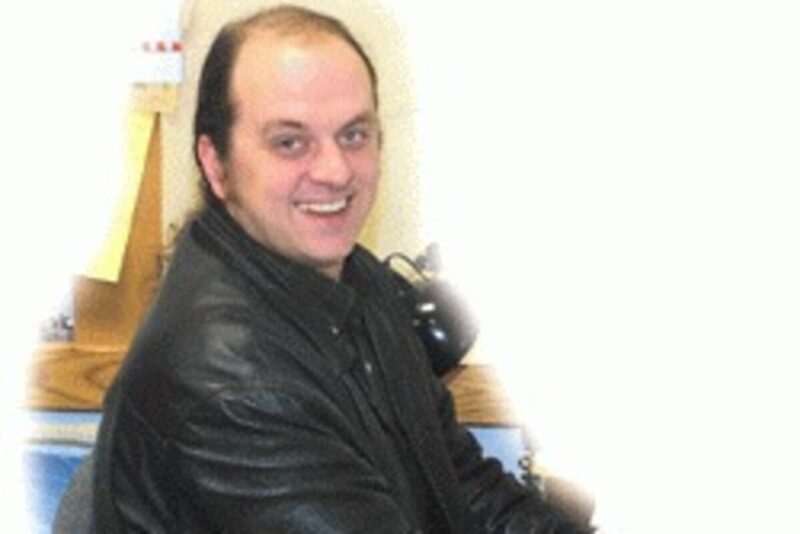Alex likes to tell people a story about the day he hired me almost nine years ago.
I had just pulled up in front of the office. Alex and Debbie were walking back to the office after lunch at Mollie’s.
I didn’t know who they were until I followed them into the office. They didn’t know who I was as they watched me get out of my red 1988 Ford Escort. Alex leaned over to Debbie and says, “I hope that’s not Sean.”
In the interview he let me, a University of Oregon graduate, know that he’s considered just to the right of Atilla the Hun politically. I had him beat. At the university, half of those socialists thought I was somewhere to the right of Adolph Hitler.
Alex told me straight up that we would work long hours, then we would work more long hours constantly. I think they were trying to scare away this long-haired freaky person fresh from Eugene’s socialist brainwashing center. (Today, he threatened to forcibly cut my hair if it’s still long when it’s gray.)
The years that have followed have been a whirlwind. Pam had worked here for something more than seven years when she quit earlier this year. It seemed strange. It never seemed like that long, but we developed a good friendship.
Inevitably, the two of us would slip out the front door for a cigarette and argument about President Clinton, President Bush, God or little green men. Minutes later, Alex would drive by, almost always in the westbound lanes across the street, but our first clue he was there was the shout, “Get back to work!”
Alex is convinced, we think, that all we did was take a smoke break the whole time he was out of the office. Alex either has a preternatural ability to just know or his timing is just rotten. He often complained that he owns the only newspaper where books need to be banned, and of course, he thinks the Jango Fett action figure usually lurking around my computer is just silly.
Pam’s going to school now, but Firiel’s smart mouth does almost as good a job infuriating him as Pam ever did, except Firiel isn’t half the socialist Pam was. Oh, well. Can’t have everything.
All in all, The New Era is fun. It isn’t really work. If I complain about a 14-hour day or having to start my day in the a.m. hours, my best friend reminds me that I get to sleep late and don’t really work, then he tells me to shut up. He works in a manufacturing plant, does work and starts his day sometime before the sun comes up.
In contrast, I get paid to wander around and talk to people, maybe hang out in the sun watching a ball game and write once in awhile.
I get to do it in a small town where “everyone knows everyone” is pretty much true.
I grew up in Salem. It was a large town then, and my friends were never in the newspaper. Their only shot at getting into the paper is typically for birth announcements, marriage announcements and obituaries. Around here, it’s the exception when a kid hasn’t had his or her photo in the paper.
In the small town, we develop connections that are not possible in big towns, like Salem. When there’s a murder, the reporter covering it is already acquainted with family members and friends of the victim and killer. When three young adults are killed in a drunken driving accident, we already know the kids. Those kids were under our cameras, sometimes constantly, as they grew up; and their friends are our friends.
These sorts of things ripple through the community, where we all most likely have just one degree of separation between us; but it’s not just the tragic that ripples through our small town.
It’s Christmas time when people show up for the lighted parade, Christmas tree lighting and Singing Christmas Tree.
It’s the football games and gargantuan funeral services for great people, like Keith Gabriel and Jim Riggs.
In all of these and countless other ways, we share a bond of happy times and sad times. In that bond is our Sweet Home pride, something that does not exist in big cities.
In those places of heavy traffic and teeming masses, a trip to the store means seeing strangers for the first and last time. They will never be seen again. A person is just a face in the crowd.
In Sweet Home, all kinds of people connect in a variety of ways. Hundreds come together from a wide variety of backgrounds at all kinds of community events, and they make connections and build friendships that may be unlikely in the big city.
When Dick Cheney stopped in Eugene, it was a delight to see Sweet Home people there. The Sweet Home thing was our main connection. It wasn’t that we were Republicans. I’m not, and I scare many Republicans. It was Sweet Home we held in common. It was like seeing friends in a crowd of nameless faces from around Oregon.
We may be into this or that, but we all can proudly identify ourselves as Sweet Home.
Thank you, Sweet Home, for the last nine years.





